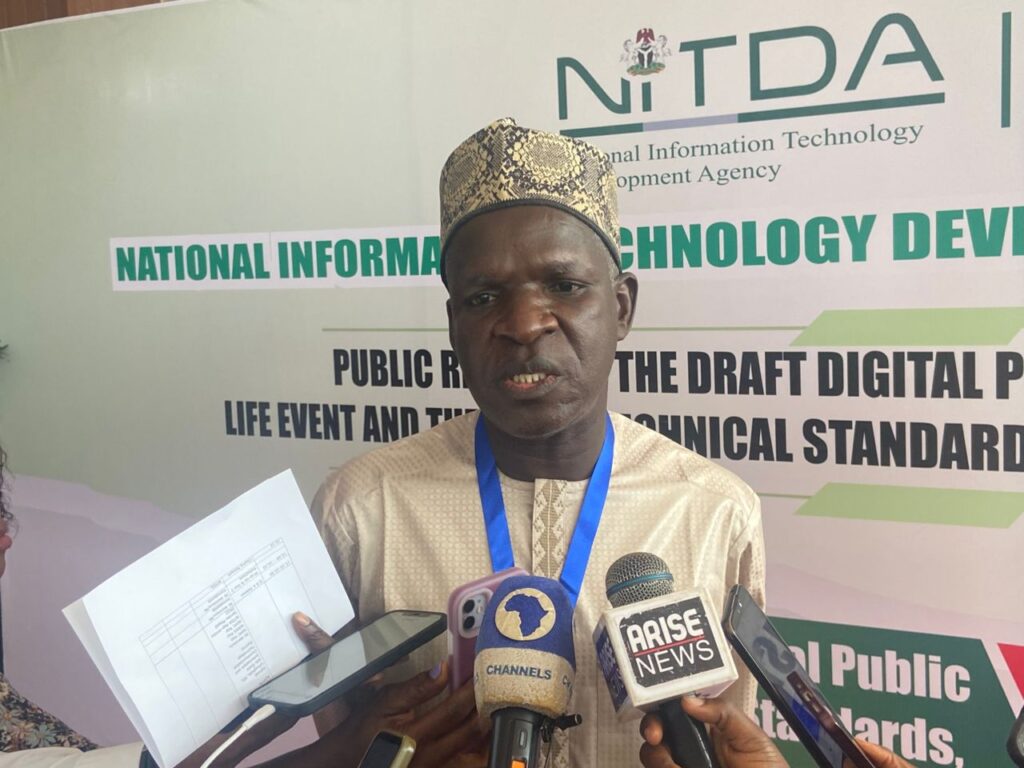By: Goodluck E. Adubazi, Abuja.
The Nigeria Governors’ Forum (NGF) initiated a Digital Public Infrastructure (DPI) readiness assessment across all 36 states, aiming to accelerate inclusive digital transformation through the adoption of key digital systems and services.
The assessment, conducted in collaboration with the World Bank and federal stakeholders, serves two core objectives: first, to evaluate the preparedness of each state to implement DPI-based public service delivery; and second, to develop a roadmap for the effective adoption and scale-up of DPI initiatives nationwide.
According to a report released during a stakeholder engagement session in Abuja, over 120.8 million Nigerians had been issued a National Identification Number (NIN) as of May 2025. This reflects steady progress in digital identity coverage, one of the foundational pillars of DPI. However, the report also underscores critical gaps in physical infrastructure—only 61.2% of Nigerians currently have access to electricity, raising concerns about the inclusivity and sustainability of digital expansion.
Other findings highlight that 94% of the population is covered by a mobile-cellular network, while 87% have access to 3G, and 84.2% are covered by 4G services. The national broadband backbone also includes over 91,475 kilometers of optical fiber infrastructure, connecting various parts of the country.
The World Bank defines Digital Public Infrastructure as a system of interoperable, reusable, and privacy-respecting digital building blocks primarily digital identity, digital payments, and data exchange systems, designed for public benefit. These systems enable both government and private sector actors to rapidly scale services and promote innovation.
Stakeholder Engagement and Policy Draft Review
Speaking on Day 2 of the public review of Nigeria’s DPI framework and draft technical standards for the Nigerian Data Exchange (NGDX), held at the Digital Complex, NCC Building, Mbora, the Director of E-Government and Digital Economy at the National Information Technology Development Agency (NITDA), Engr. Dr. Kaka Salisu, emphasized the importance of establishing robust standards and regulatory frameworks for DPI implementation.
“We are here for a stakeholder engagement to review the draft DPI live event document and the technical standards for the Nigerian Data Exchange,” said Dr. Salisu. “Our goal is to lay a strong foundation through the right regulations, frameworks, and guidelines that ensure interoperability, security, and privacy.”
He further noted that the DPI initiative is designed to foster trust in digital governance, allowing citizens to interact with government systems safely and efficiently.
“What’s central to data exchange is trust—privacy, security, and control. That’s why we’re encouraging states to create their own data exchange points that align with national standards but reflect local autonomy,” he added.
According to Dr. Salisu, Nigeria is on track to fully implement its DPI stack by the end of 2025, with the first set of use cases expected to roll out in Q1 2026.
Representatives from various state governments expressed optimism and alignment with the national DPI agenda. Agbama Elisha, Head of Networks, and Mary Leo Ekanem, Director of E-Government for the Cross River State Government, shared insights on the state’s progress.
“Most of the services we provide in Cross River have gone digital,” said Ekanem. “Citizens can now access land registration, make payments, and conduct other transactions remotely. Our broadband infrastructure reaches not just government offices, but homes and private businesses.”
However, she acknowledged funding challenges that could hinder full implementation.
“Our concern is the availability of funds to scale this fully at the state level. But with the knowledge gained from this engagement, we’re better positioned to plan ahead,” she said.
As Nigeria continues its journey toward digital transformation, the DPI readiness assessment offers a comprehensive baseline for action. While achievements in identity enrollment and connectivity are notable, infrastructure gaps—particularly in electricity and localized data exchange systems—remain a major hurdle.
With stakeholders across all levels engaged, the Federal Government, through NITDA and the NGF, is expected to finalize the DPI framework by the end of 2025, ushering in a new era of digital public service delivery for Nigeria.

